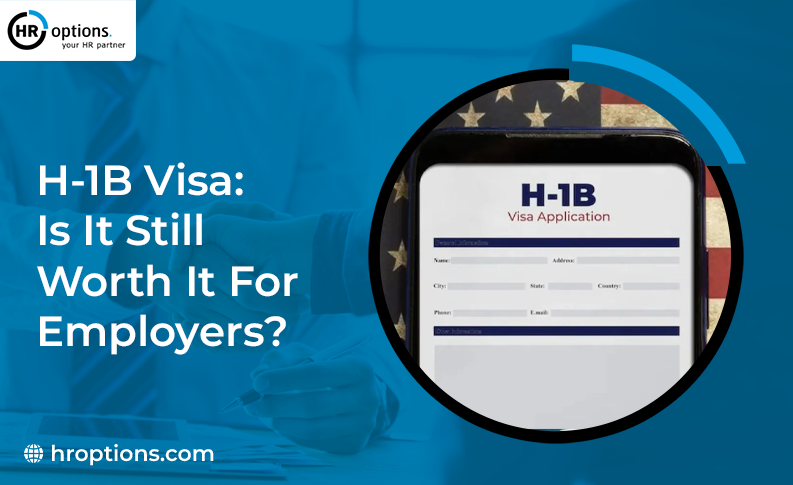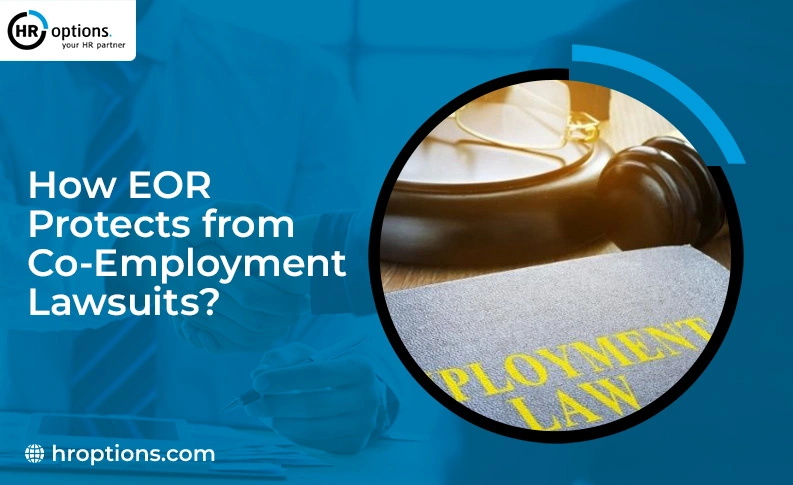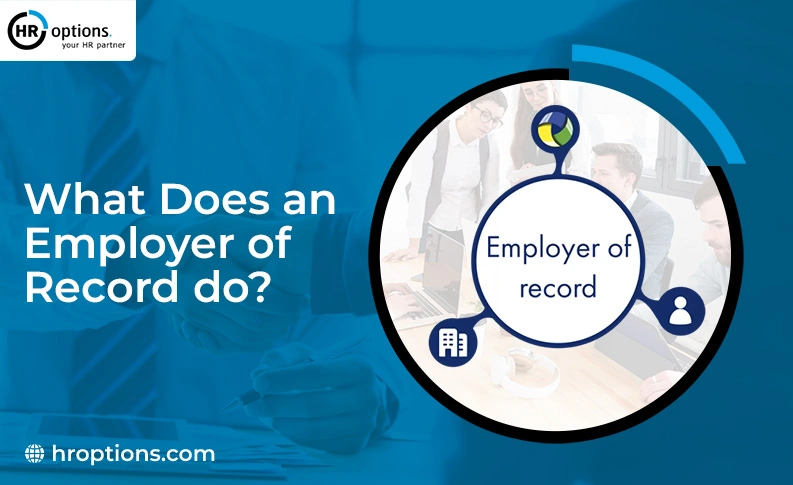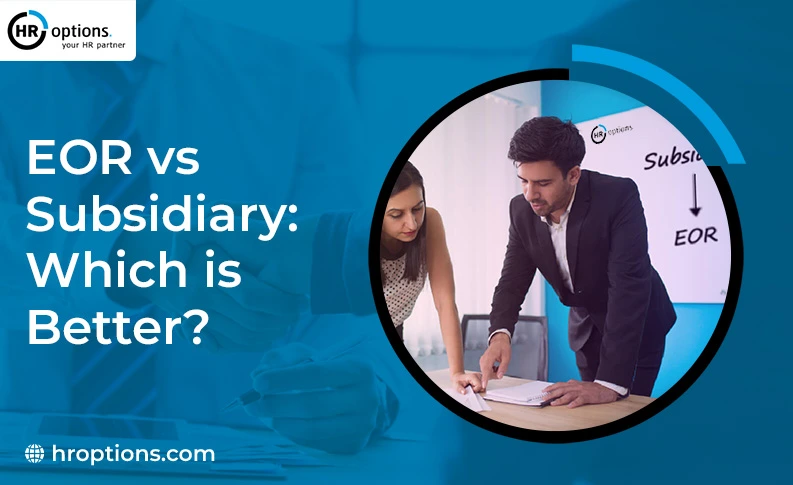Hiring new employees means a lot of responsibilities—payroll, taxes, compliance, benefits, and so on. Two popular options for companies looking to make these tasks easier or expand globally are PEOs (Professional Employer Organizations) and EORs (Employers of Record). Both assist companies in handling HR responsibilities, but which is right for your organization is the real question.
A PEO cooperates with companies to manage HR activities but shares some employment tasks as a co-employer. It provides services such as payroll processing, employee benefits, and compliance. On the other hand, an EOR hires workers legally on behalf of firms, taking care of all HR aspects and compliance. It is suitable for companies seeking to expand worldwide without establishing local offices.
What Is a Professional Employer Organization (PEO)?
A PEO is a joint venture between a business and an HR service provider. In this structure, the PEO handles most HR functions and shares some employment responsibilities with the organization. This co-employment structure helps companies use the PEO’s assistance to manage their workforce better.
Which Services Does a PEO Offer?
- Payroll Processing: Handling employee paychecks, tax withholdings, and tax regulation compliance.
- Employee Benefits: Health insurance, retirement plans, and other benefits often at lower costs than individual companies can access.
- Workers’ Compensation Insurance: Providing coverage for occupational accidents.
- HR Support: Guidance on HR policies, performance management, training, and development.
- Compliance Assistance: Ensuring the company complies with local, state, and federal labor laws.
Co-Employment Model
In a PEO arrangement, the client and the PEO become co-employers. The PEO assumes much of the responsibility for HR while the client retains control over day-to-day employee management. The client directs employees’ work, while the PEO manages the administrative tasks.
PEO Services Are Ideal For:
Small and medium-sized enterprises that want to enhance HR functions, improve employee benefits, and remain compliant without sacrificing control over employees.
What Is an Employer of Record (EOR)?
An Employer of Record (EOR) is a business that legally hires employees on behalf of another firm. The EOR handles all human resources functions, such as payroll, benefits, and labor law compliance, while the client firm manages the employees’ daily operations.
Which Services Does an EOR Offer?
- Payroll Management: Processing payroll, tax reporting, and correct deductions.
- Employment and Tax Compliance: Administering compliance with local and international labor laws.
- Benefits Administration: Providing health insurance, retirement schemes, and more.
- Onboarding & Offboarding: Managing recruitment and employee exit formalities.
Legal Employer Model
In an EOR model, the EOR is considered the legal employer of the employees. The EOR manages all compliance, payroll, benefits, and disputes, while the client company controls employees’ daily work and performance.
EOR Services Are Ideal For:
Businesses that want to expand globally without establishing a local entity and companies that want to reduce legal risks tied to employee management.
Comparing PEO and EOR
The table below highlights key differences between PEOs and EORs.
| Feature | PEO (Professional Employer Organization) | EOR (Employer of Record) |
| Legal Relationship | Co-employment: shares responsibilities with the client. | Full legal employer on behalf of the client. |
| Entity Requirement | Client must have a legal entity in the country of operation. | No entity required; EOR hires employees globally. |
| Control Over Employees | Client manages day-to-day tasks; PEO handles HR admin. | Client directs daily tasks; EOR assumes all legal employment responsibility. |
| Compliance & Liability | Shared between PEO and client. | EOR assumes full compliance responsibility. |
| Scope of Services | Payroll, benefits, HR support, compliance. | Hiring, payroll, benefits, compliance, onboarding. |
| Ideal For | Companies with entities seeking HR outsourcing. | Businesses expanding internationally without local entities. |
| Cost Structure | Percentage of payroll or per-employee fee; cost-effective domestically. | Flat per-employee fee; avoids costs of setting up an entity. |
| Flexibility | Best for long-term domestic operations. | Ideal for short-term projects, new markets, or multi-country hiring. |
| Risk Management | Client shares risk with PEO. | EOR assumes all employment-related risks. |
| Time to Hire | May take longer due to entity requirements. | Faster hiring; EOR has existing entities worldwide. |
When Should You Choose a PEO?
- Best for domestic operations (e.g., U.S. businesses).
- Ideal for companies comfortable with shared HR responsibilities.
- Great for organizations needing HR support, compliance, and benefits management.
When Should You Choose an EOR?
- Perfect for international expansion without setting up entities.
- Ensures compliance with foreign labor laws.
- Minimizes employment-related legal risks.
Conclusion
Both PEOs and EORs help businesses manage HR, but they serve different needs. PEOs are ideal for small to medium businesses that want to outsource HR tasks while retaining control over employees. EORs are best for companies looking to expand internationally, reduce compliance risks, and hire quickly across multiple countries.
At HR Options, we specialize in both EOR and PEO solutions, helping businesses stay compliant, scale globally, and focus on growth. Contact us today to learn how we can support your success.








